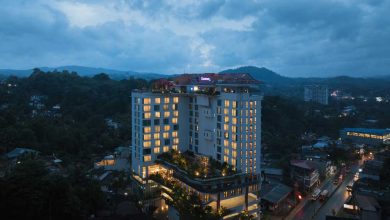THE COMMONWEALTH
Commonwealth action group on mangroves meets in Sri Lanka

Commonwealth countries are meeting this week in Negombo, Sri Lanka to decide on a work plan to help save the world’s mangroves.
The plan includes joint actions, projects and funding strategies for the short and medium term.
The activity is part of the work carried out under the Commonwealth Blue Charter – an agreement by all 53 Commonwealth countries to actively co-operate to solve ocean-related challenges and meet global commitments on sustainable ocean development.
The Blue Charter works through voluntary action groups led by ‘champion countries’, who rally around issues such as marine pollution and the sustainable blue economy.
Home to over 19,000 hectares of mangroves, Sri Lanka champions the Mangrove Ecosystems and Livelihoods Action Group (MELAG). To date, nine other Commonwealth countries have joined MELAG, including Australia, Bangladesh, Vanuatu, Bahamas, Nigeria, Jamaica, Kenya, United Kingdom, and Trinidad and Tobago.
Sri Lanka’s Director General of Ocean Affairs, Environment and Climate Change Hasanthi Urugodawatte Dissanayake said: “Given that Sri Lanka is ranked number 2 on the Global Climate Risk index in 2019, it is natural that Sri Lanka has stepped forward as champion of the MELAG.
“The first meeting of the MELAG has allowed Commonwealth members to share experiences and expertise to compliment global efforts in the protection and restoration of mangroves.”
The workshop highlights the importance of mangroves – which generate far-reaching environmental and economic benefits – as a global ocean issue.
Aside from being a habitat and nursery grounds for various plants and animals, mangrove ecosystems can absorb three to four times more carbon than tropical upland forests, helping to mitigate the effects of climate change. Mangroves prevent coastal erosion, protect shorelines, while also providing livelihoods for coastal communities, through fisheries and ecotourism.
However, more than half of global mangrove cover has been lost over the last 50 years, partly due to extreme pressure from human activities.
Commonwealth Adviser Heidi Prislan, who co-organised the event, said: “Several Commonwealth member states have very large areas of mangrove. This means that action taken to protect and restore mangroves in the Commonwealth will have a significant global impact.”
Activities being planned for the group include developing a database of mangrove ecosystems in the Commonwealth, sharing technical know-how and best practices on mangrove restoration, and strengthening community partnerships and legal frameworks.
The meeting runs from 7 to 10 October.





